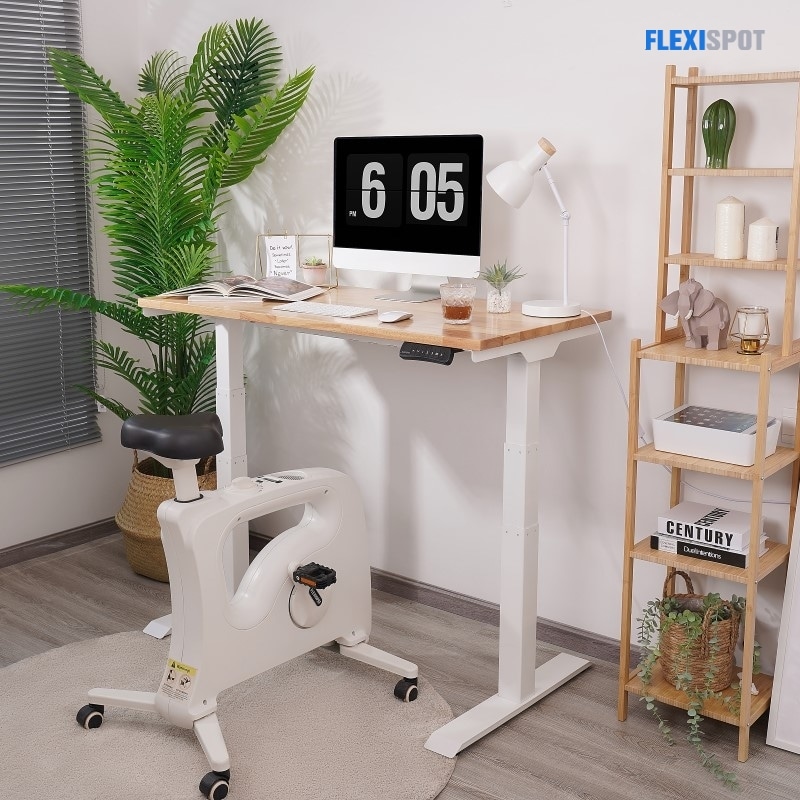Even though numerous studies show that employment produces beneficial outcomes and increases productivity, there are multiple obstacles to overcome along the route.
Work from home, for example, is seen as a flexible option for employees who previously had to commute for hours and work on a set schedule, but there is also the risk of overworking, which we rarely consider.
Employees' mental health improved due to working from home, but many employees' work-life balance suffered as a result.
Unfortunately, when employees are on a 'holiday,' some organizations overwork them to the point of emotional and physical exhaustion.

During the pandemic, overworking hurt health, and many employees, even those at home, requested stress leave from work. Thankfully, some firms are aware of the dangers of overworking their personnel.
As a result, people tend to stick to the timetable for safe and productive work. The advantages of work-life balance also make it critical for businesses to take significant steps to ensure that employees feel valued and perform at their best.
This essay will discuss the negative impacts of overworking on mental health and offer practical remedies for remote workers who are experiencing work burnout due to the pandemic.
Health Consequences of Overworking
Overworking hurts every aspect of your life. Overworking messes up your schedule, affects your attitude, hurts your family, and has a generally negative impact on your life.
While it is tempting to think that working from home allows you to spend more time with your family, this is far from the case. So, consider the following effects of overworking to see if you are on the verge of work burnout.
Diet
You tend to neglect a balanced diet and nutritional routines while working long hours. This may also reduce the amount of time you have to prepare meals, leading to uncontrollable snacking.
Long work hours, which are linked to stress and bad eating, can lead to various difficulties, including becoming overweight or obese.
Depression
It is an evident side effect of working too much. While this may come as a surprise, excessive hours of labor can lead to sadness. However, while there does not appear to be a clear link, many variables that arise due to overworking can lead to depression.
When you work too much, you do not have time for yourself or your family. Your eating habits are also harmed, and you are on the verge of losing your social life. This causes and contributes to workplace isolation, which leads to misery and despair.
Diabetes
One of the disorders that have been linked to long work hours is diabetes, and it is related to a daily decline in diet and long work hours, which may cause workers to change their eating habits. Some researchers have found a negative link between diabetes and working hours.
Behavior
People who work until they are physically and emotionally exhausted are more likely to have aberrant health behaviors.
For example, you might see someone starting to smoke heavily or drinking incessantly. Some people acquire lousy eating habits and become addicted to sugar, and others develop a coffee addiction.
Workplace Errors
You will not be able to function at your best since your brain is overloaded. Overworking has the consequence of making it difficult to complete simple activities or finish small chores, which could lead to more errors and problems in your work.
Problems with Posture
If you work long hours, it is easy to forget that you are stuck in that chair for hours. While you may overlook muscle tension development from sitting in the same position for hours, back discomfort and neck cramps may become a part of your daily routine.
As a result, many people develop lousy posture and suffer from reoccurring physical problems. This problem can be solved by acquiring a FlexiSpot standing desk or ergonomic chair.

Take a look at the Soutien Ergonomic Office Chair with the Adjustable Standing Desk Pro Series.
How to Deal with Overworking's Consequences
Suppose you have recently felt overwhelmed by work and like it is taking over your life in a variety of ways. In that case, you need to address the effects of overworking by finding effective remedies. Here are a few effective techniques to deal with overworking.
Rearrange the Positions
Physical weariness is one of the primary causes of melancholy and stress in the job. Physical exhaustion produces a slew of problems and reduces work productivity.
As a result, it is critical to alternate between sitting and standing positions and regularly get up from your chair. You might also invest in a standing desk to effectively switch between sitting and standing positions while working.
Evaluation
The hardest part about mental illness is that it does not always manifest itself. Employees should be encouraged to speak openly about their mental health and well-being by their employers.
If they are experiencing burnout, they must be at ease enough to express it. Stress level assessments can also be used by businesses to assess each employee's mental health.
Exercise
If you have not been able to find a free slot to go to the gym recently, who says you cannot do the bare minimum?
You may burn calories with equipment like an under-desk elliptical or other basic standing desk activity. If you require some lower-body movement, consider investing in a flow board.
Snacks That Are Good for You
It is natural to feel hungry when working, and you should not deny yourself food, and Hypoglycemia or dehydration may arise as a result of this.
Switching to nutritious snacks, on the other hand, might be a game-changer. Instead of eating chocolates, chips, or cakes, you might eat nuts or salads as a nutritious snack.
A Favorable Environment
While lengthy work hours might lead to overworking, your work environment can also be stressful at times. Take a look around and see what you can do to better your work.
Make sure you have comfy furniture, lovely relaxing color on the walls, and a small plant or two for a productive effect.
Inquire for Assistance
This does not have to be a last resort because seeking assistance does not make you weak; rather, it makes you more aware. When you are overworked, it is typically because your daily tasks are overwhelming you.
Instead of ignoring that part of your brain warning you there is already too much on your plate, take a breath, stand back, say no to more requests, and devise a strategy to prioritize, delegate, and single-task your way to breathing room.





